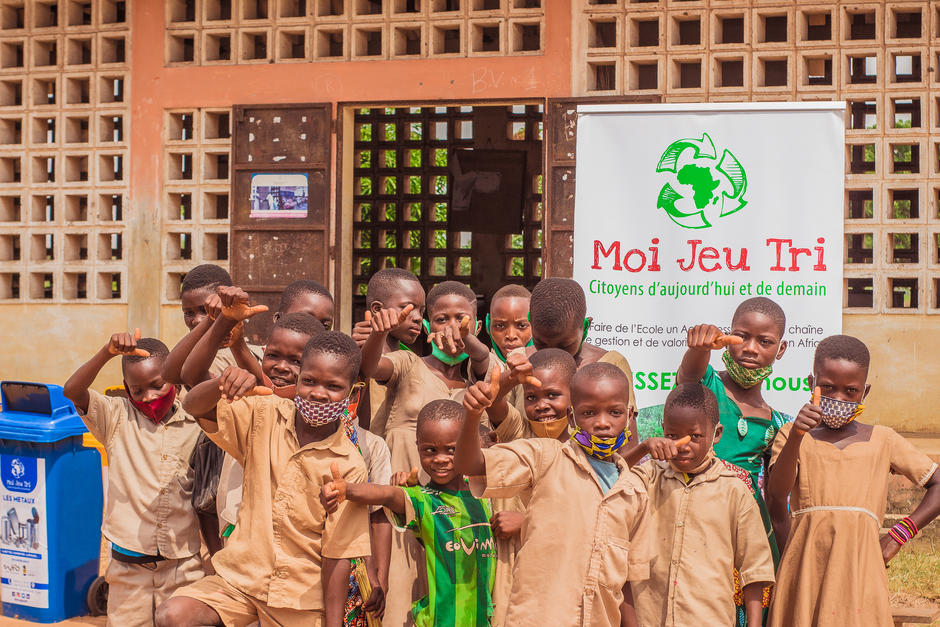
Environment & biodiversity
- Location:
Abidjan (Ivory Coast) - Sponsors:
Valentine Motosso, Maëlle Maurice - Grants:
€12,000 at the selection committee meeting on 28 October 2020
€3,000 on 18 January 2022
€30,000 to the Selection Committee on March 28, 2024 (over two years)
Project Leader
The creation of the socio-educational and environmental program "Moi Jeu Tri" dates back to 2016. It was designed by a group of waste management and recovery experts in response to the failure of many of the policies put in place in sub-Saharan Africa to tackle the issue. The basic idea is simple: by raising children’s awareness and educating them, waste management will move forward. Convinced by the premise, these specialists have embarked on a project in which young people become selective sorting and recycling ambassadors.
Students as waste collection drivers
Pupils themselves are encouraged to bring recyclable waste sorted at home to their school. The waste is then taken to the appropriate sorting center for recycling. And the financial profit from this collection is reinvested in a social, ecological or humanitarian project within the school, or in its immediate environment.
Sorting in the field
The approach was first implemented in the French high school in Lomé, the capital of Togo, in 2016, before being extended to a very large number of other students: in 2019, 18,000 students were thus made aware of the recovery of recyclable household waste. By the first quarter of 2020, 35,000 pupils had been trained. This success has prompted the association to set up a branch of “Moi Jeu Tri” in Côte d'Ivoire, and another in France, to provide technical, financial and human support for operations in Africa.
Thus structured, Moi Jeu Tri deployed the program in 100 new schools in Côte d'Ivoire over the period 2020-2021, with the support of the Veolia Foundation, renewed in 2022.
Doubled as a collection point for recyclable waste from household selective sorting, the school becomes an essential link in the local circular and solidarity economy.
The circular economy, a vector of emancipation for women
Moi Jeu Tri has added another link to the social value chain with its “Waste Work for Women” program. Launched in 2024 with the support of the Veolia Foundation, it follows on from a first initiative around training: “Moi Jeu Forme”. The aim is to support women in their economic and social integration through circular economy professions.
Beneficiaries are women aged between 18 and 40 who are far from employment and have been selected in partnership with local authorities and their social support structures. They are offered an eight-week training course, focusing in particular on the concepts of waste recovery and the circular economy, so that they can draw up a project in this sector. This is followed by career guidance, which can lead to self-employment in the form of cooperatives (for example) or salaried employment in partner programs.
The 60 women integrated into the program are monitored for a year to assess the quality and sustainability of their integration.

